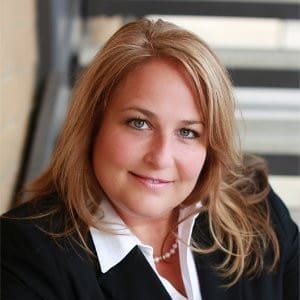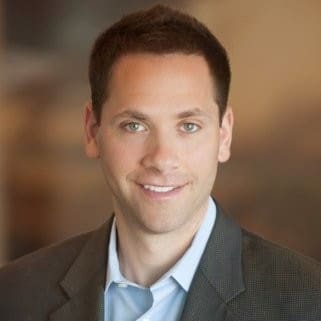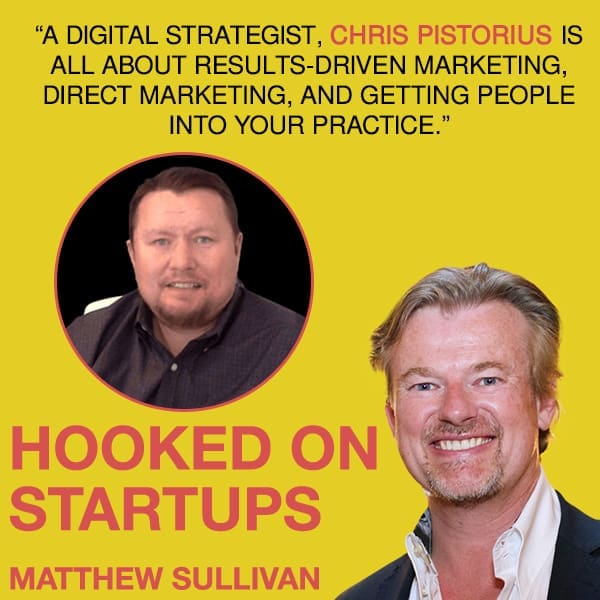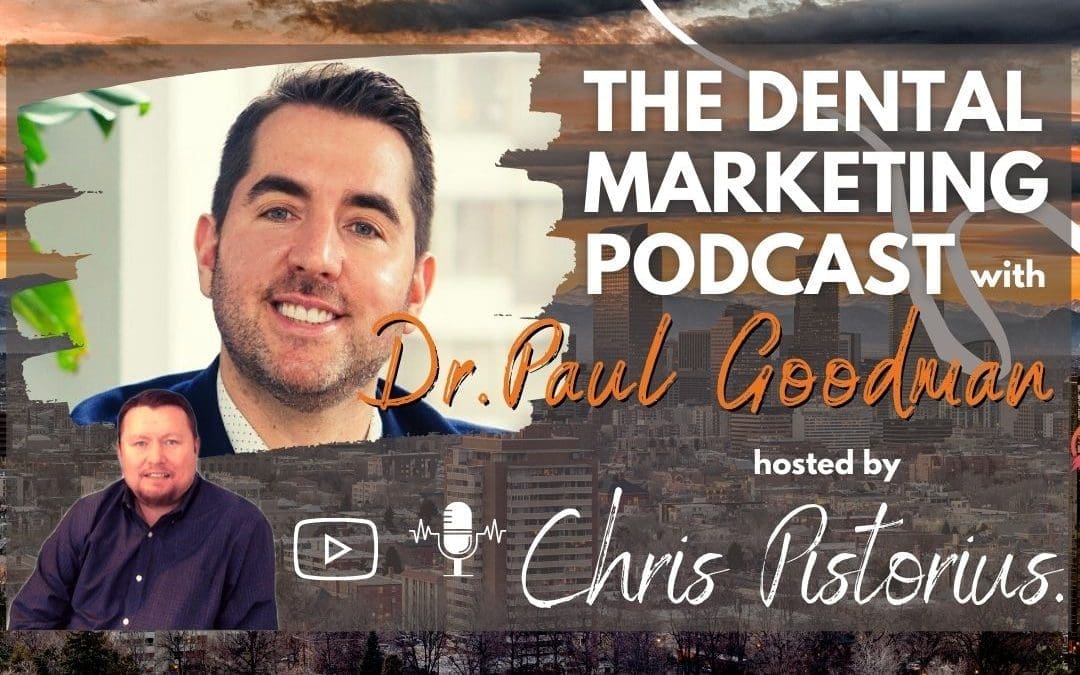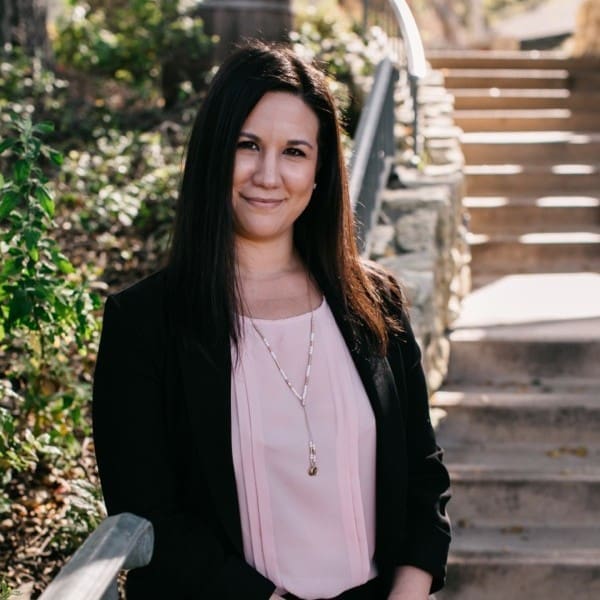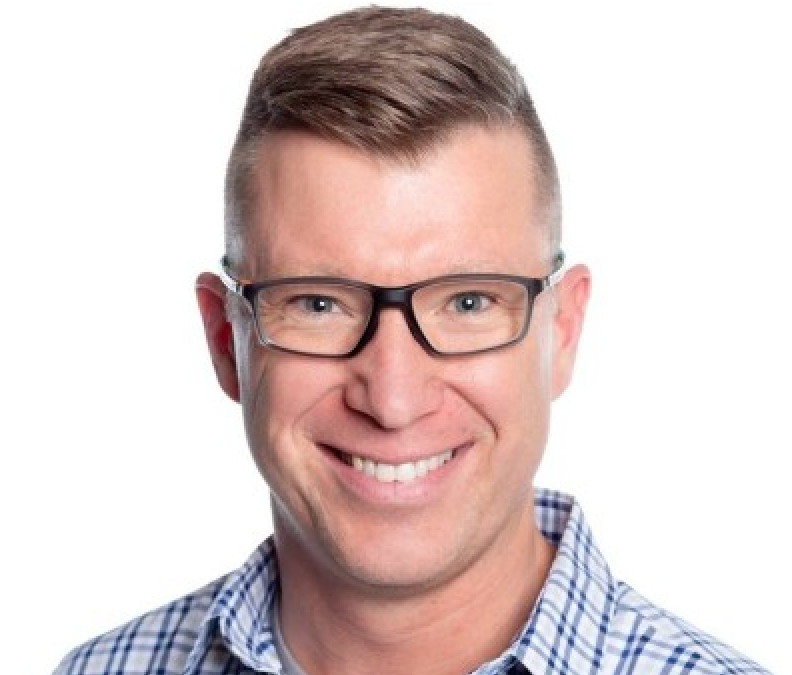
How This Iowa Dentist Tripled His Business
Dr. Chad Johnson of Veranda Dentistry shares how he was able to grow from one practice to three. He shares his experience and best practices in this episode, this is one that you won’t want to miss!
View Full Transcript
Chris Pistorius:
Hi, everyone. This is Chris Pistorius with the Dental and Orthodontic Marketing Podcast. Thanks for tuning in today, or downloading, or however you listen to this. Today, we’ve got a great, great guest. I’m with Dr. Chad Johnson of Veranda Dentistry in Iowa. Dr. Johnson has three locations, and we’re going to talk a lot today about his success and how he kind of went from starting this, all the way up to three locations now, but Dr. Johnson, thanks so much for being a part of the show today.
Dr. Chad Johnson:
Yeah. Glad to join. Hey, everybody.
Chris Pistorius:
Yeah. So we, here at Kickstart, we obviously talk a lot about growth, right? Because dentists typically hire us to help them grow, right? And sometimes they just want to have a little bit more new patient flow for their existing practice, but there’s a lot of folks that are looking a little beyond that, opening up another practice. And I know there’s a lot of stressors, if you will, to go with that, but why don’t you tell us a little bit about your practice and how you got started originally?
Dr. Chad Johnson:
Sure. So I graduated the University of Iowa College of Dentistry in 2005. And so, at this point of the recording, I’ll have been open 16 years this summer. And so I just opened right out of school. It was still pre-2009, pre-2008 regulation stuff, that on a handshake while I was in dental school, I was able to get alone and open up as a hometown boy back in Pleasant Hill, Iowa. And so then I, just at age 40 last year, got done paying off my debts for the original practice loans and whatnot. And so I thought to myself, “Do I want to continue on kind of easy street after having paid all those off? Or do I double down and start investing in growing the brand that I had created?”
Dr. Chad Johnson:
So before COVID had hit, I thought it would be a genius idea to buy another practice. And while I was looking, basically another guy was like, “I really wish you’d buy mine too.” And so I ended up buying two practices and having the deal solidified legally right as COVID hit. So then I was kind of locked in to making it happen. And so for a year now, I’ve had three practices, two new ones. And so I have one on the north side of Des Moines, one on the west side of Des Moines and one on the east side of Des Moines.
Chris Pistorius:
Very cool. Nice. Take us back to 16 years ago or so when you started your first one. Were you thinking, “You know what? One’s great, but I want more,” or was one kind of the plan and this kind of all came together?
Dr. Chad Johnson:
I think my answer at that time probably would have been, “I’m open to thinking there could be more, but I just doubt it.” I think I was content with the thought of just opening up my own business. I don’t know. It’d be if you went back to Biden or Trump or anything like that, I’m throwing those key words in there, so if this gets transcripted, yeah, it’ll be a hot topic.
Chris Pistorius:
I like it.
Dr. Chad Johnson:
Yeah. If you go back to any of those presidents back when they were 20, and if you said, “Do you think you’ll be president someday?” They’d be like, “Well, I mean, I don’t want to rule it out, but I mean, I don’t know why I would be.” So, and then sure enough, after the fact, they get there. So, no, 16 years ago, that wasn’t on my radar. I don’t think I would have ruled it out if you would have said, “Do you bet that someday you might own three practices?” I’d be like, “I mean, I suppose, but it’s just not something that I want to, or care to, think about much right now.” That’s probably how I would have answered it at the time.
Chris Pistorius:
Yeah. I think that’s probably fair, and probably how most people think about that. Let me ask. So did you start the first one from scratch or did you buy an existing one?
Dr. Chad Johnson:
Nope. It was from scratch.
Chris Pistorius:
Okay. Got you. So you’re staring at a blank sheet of paper on your appointment calendar, day one, right?
Dr. Chad Johnson:
Yes.
Chris Pistorius:
And what is it that you did to go from nothing, to get to a point to where you can expand? How did you grow that patient base? How long did it take you? Maybe get into some of that.
Dr. Chad Johnson:
Sure. And I’ll even split it up into how I did it, versus how I wish I would’ve done it.
Chris Pistorius:
Okay, great. Great.
Dr. Chad Johnson:
Yeah. So how I did it was, we sent out mailers. My brother is a realtor, and at the time, he’s three years younger, he had already started his own real estate company and stuff. And so we thought, “Let’s split the difference on doing a mailer together for all the people that we know from around town and stuff like that. Let’s just kind of combine our resources of who we know, and let’s mail those people.” Basically we mailed them a Christmas letter saying, “Merry Christmas, and then here’s a magnet calendar.” Realtors are good at that kind of stuff. Especially 20 years ago, for 20 years ago. So we mailed out a mailer, a calendar, and it was a magnetic one that would stick on people’s refrigerators back when people did that, and these days, refrigerators are too pretty. But so we mailed those out and I think each of us spent $800 bucks on that we split the cost and mailed it out to, I don’t know, 500 or 1,000 people, or something like that, and we did that for a few years.
Dr. Chad Johnson:
What else did I do? For example, I coached a fifth grade basketball team around here, I joined the booster club, kind of some of your quintessential small town stuff that you would do. And I was well-known enough. I think also what doesn’t really help some people out, unless you’re really thinking ahead, is your reputation can precede you. And so if you have a good reputation, or let’s just broaden it out. If you don’t, or you don’t feel like you do, and you’re starting off in a new town, is you create the brand of who you are and what your public perception is.
Dr. Chad Johnson:
Now, what’s best, I suppose, is when there’s harmony between reality and what you’re trying to have people perceive. Then, you’ve got sincerity to your story. If you’re trying to portray yourself as a nice guy, but you’re a jerk, I suppose it’s going to play out after a while. But then again, what I’m saying is, if you want to be known as the guy who’s always helping with the sports teams and stuff like that, but you don’t love sports, well, that’s going to be dumb. But if you do have sports and you do love getting involved with that, well, then there’s going to be integrity to that, sincerity and integrity to that marketing.
Dr. Chad Johnson:
Now, what I also wish I would have done differently, but the there’s a dilemma in it. So I’ll get to that in a second. What I wish I would have done is, later on in my career, let’s see, that would have been about seven years ago, I started having a marketing manager. And so they’re in charge of reviewing my ROIs and tracking our data and putting phone numbers on stuff, so that way, we can see where our calls are coming from and working with the front desk people on how we’re answering the phones. So there was a lot smarter way to do it and more effective way to do it, and so that way we could track it. The only downfall to that is, on day one out of school, and I don’t really have a marketing budget, so that was the dilemma. I think if I went back and I said, “Chad, you should do this.” I’d be like, “Older Chad, listen, that’s cute and all, but I don’t have any money.” And I’d be like, “Oh yeah, good point.”
Dr. Chad Johnson:
So finding that dilemma of when you first can have someone that can oversee your marketing, but whether you have someone, I guess, to oversee it or not, then if I were to go back and say, “Okay, let’s compromise. Set up some phone numbers to be able to track where you’re getting your leads from, track it in your office when those patients finally do come in, and then also set aside money for a marketing budget.” If your marketing budget is 0% or 1%, then you’re probably not going to have that big of a return on the investment, as opposed to, let’s say that you spent 5%, so five times more than your 1% budget. You spent 5% budget in 2022, and you set up for that. You’re going to spend 5%, and that’s five times more than you had been doing before. You’re going to get more than a five fold increase on your marketing ROI, your return on investment.
Dr. Chad Johnson:
That’s just my opinion. And I imagine that matters from area to area, but it’s a synergistic outcome of being able to saturate your market with multiple media ideas. So for example, whether you’re doing Facebook and Instagram and YouTube and Google ads and mailers and radio and the local ball team’s banner at the little league ball field, that you’re hitting a few different venues of how people are seeing and thinking about you to keep your brand on their mind.
Chris Pistorius:
Yeah.
Dr. Chad Johnson:
Way long answer. My apologies.
Chris Pistorius:
No, no, no, no. I think you hit the nail on the head there. In fact, it doesn’t work for every market, but in some of the smaller markets, in terms of local community marketing, we actually, part of our service is that we will, on behalf of our client, we’ll actually reach out to little league teams, churches, events, anything that we can try to get involved with, and try to get some sort of sponsorship opportunities out of that. And it helps two-fold, in number one, what you talked about. They start seeing that brand kind of in the local community, which I think is awesome, but on SEO part of it, search engine optimization, which is getting your website to rank highly, you can get links from these events and from these organizations to your website, and that can just absolutely, incredibly boost your SEO positions, because Google loves to see those local community type back links coming in. And so it really is a twofold strategy where you get more exposure in a local market, but you might as well help your Google rankings while you can.
Dr. Chad Johnson:
Yeah, I like that, because you’re not only getting the PR that you want, but then you’re self promoting, in a way. And that sounds negative, but it’s just, well, take it for what it is. You’re using the PR that comes out and you’re trying to basically stir it, so that way it shows up in your LinkedIn, in your YouTube, in your Instagram, in your Facebook, all that kind of stuff. Or even if you’re small enough, your local town paper, perhaps. But just something, so that way, you’re recycling it. So that way, people are saturated with knowing. The humility thing, that’s fine, but at the same time, you have to have someone doing that for you. So self promotion might too strong of a word, but that’s why someone like you could go in there and do the promotion, and then it doesn’t necessarily have to come across like you’re promoting yourself.
Chris Pistorius:
Right, yeah. You’ve got it. And I still know dentists, I live in Denver, but I still have clients here that go to a weekly leads meeting, like BNI, for instance. They still get a great stream of new patients from doing kind of just grassroots marketing stuff like that. Did you do any of that or do you do any of that now?
Dr. Chad Johnson:
No. I think part of the reason why is, I mean, because my quick answer was going to be, “I’m not really a fan of doing that,” but I think the reason why is because I’m so extroverted anyway, that I don’t need too much of a platform to do that kind of stuff. I do feel like that probably helps some people out that otherwise naturally wouldn’t be finding those venues, but I’m really that quintessential guy that actually goes up to you and shakes your hand at a wedding and says, “I feel like I should know you, but I don’t know why.” And I’ll just strum up a talk that way. So for me to put it down might be a little quick shooting from the hip when, in fact, it might just be that my personality affords me to naturally meet enough people the way that I do, so yeah.
Chris Pistorius:
Makes sense. Well, when I started this business, I was kind of like you, I’d quit a pretty good paying job and had two little kids at the time. And all of a sudden, I’ve got a piece of paper in front of me with no clients on it and no income. So I’m like, “All right, I need to kind of go do the Mark Cuban approach, and you just grind and work and do everything you can to get in front of people and talk to people.” And I know dental practices that do that, and they have a lot of success with it, but you’re right. I mean, you can’t fake it, because if you don’t to go network and talk to people and be outgoing, it’s not going to work for you.
Dr. Chad Johnson:
Yeah. And if it’s not for you, call it like it is, because that might actually hurt your business if you go to those things and you’re just kind of a bah-humbug little fly on the wall, people are going to be like, “I don’t know what’s wrong, but he doesn’t seem to like us,” so it could actually work against you. I don’t know if that’s the case with most dentists, but probably at least, I don’t know, let’s just say a third of us, that a third of us dentists probably would not benefit from that, because you’re so shy and stuff like that, that if you stayed with online presence, then you’re able to craft more of an intimate, introverted story, and that authenticity would come out too, in a good way.
Chris Pistorius:
Yeah. And I just want to put in there that you are not a client of ours. In fact, we just spoke for the first time ten minutes ago, right?
Dr. Chad Johnson:
Right.
Chris Pistorius:
So could you tell me and everybody that’s listening, current day, three locations, post COVID, are you doing Google stuff? It looks you’ve got an awesome website, but what’s your strategy now, and what do you see that’s working the best right now for you?
Dr. Chad Johnson:
Internal marketing is still and always the best. So what we do is we have plaques on the wall, and this would depend from state to state, that say, “We love getting referrals and we’d to thank you for your referrals.” We basically are implying that we’re giving out gift cards of thanks for those that refer people, and for the people that got referred here. And so we have a choice of three or four different small gift card ideas that are up in each operatory showing on the plaque what we offer. And we also hand out little cards that say, “Thank you for choosing us. If you had a great visit, we’d love if you referred someone,” and it’s actually perforated where they can keep one side and give the other side to someone else saying, “I loved coming to Veranda, and I’d love if you were to give them a call and schedule a visit as well.”
Dr. Chad Johnson:
So internal referring, I think, so when we count our dollars, we count our dollars for how much we spend on something, and then how much return a treatment plan completed that we do for that, so to calculate our ROI. And it’s over 90 to one on internal referrals, because that kind of stuff, there’s a little cost upfront. And by little, I’m just saying, those plaques might be, shoot, I don’t know. It’s been a while. I don’t know. Let’s just say $1,000 bucks. And then if we spend for printing those cards and others, and the printing of the cards is probably $200 bucks. And then the gift cards that go with it, $25 bucks per person, so that’s $50 bucks. And then times, let’s just say, 10 a month. So that’s $500 bucks.
Dr. Chad Johnson:
So you’re still under $2,000 at first, that first month. And then from every month thereafter, another $500 bucks, because you have everything printed. So at the end of the year, if you spent $6,000 bucks, but you got $60,000, or after a while, $600,000. We get a huge return, because if those cards last for four years, let’s say we did a print of 1,000 of them, and you’re handing them out little by little, and the next year and the next year and the next year, basically it’s just like fuel economy. After you filled up, and then if you’re coasting downhill from Denver down to wherever, going down the hill, you’re stacking your fuel economy, miles per gallon, in your advantage to where then when you review that.
Dr. Chad Johnson:
So internal referrals, that is our hugest return on investment, but you have to be proactive and willing and talking with your team, grooming them to understand the importance of it and how to talk about it and why to talk about it. They need to love your brand anyway. If they don’t like you as the boss and stuff like that, they’re not going to do that. So that would be another thing for you to figure out. Does your team love your brand? And by brand, I kind of mean you.
Dr. Chad Johnson:
And after internal referrals, another good return on investment for us is Google ads and SEO kind of stuff. I have to admit, I’m not the best at understanding the minutia differences between the two, because it seems like STO is a smidge different, but we kind of group those together and I think we get a 10 to one, and then I do radio. And I think our radio, and the reason why is I’ve got three offices that, in essence, if you did a 20 minute drive between each one, it creates this triangle in the Des Moines area. So they’re not necessarily close to one another. They’re, let’s say, 15 miles from each one.
Chris Pistorius:
But they’re not far apart either, right?
Dr. Chad Johnson:
What’s that now?
Chris Pistorius:
They’re not far apart either though.
Dr. Chad Johnson:
No, close enough that I can easily get to, so by spreading it out, when I do radio for one office, there’s a lot of people on another side of town that might not come over to see me. But when I have three locations, in essence, what I’m doing is I’m splitting the cost. So that’s where the economy of scale can help me out by doing three offices and doing radio. For example, if McDonald’s does a radio ad, every McDonald’s is going to have advantage of that. Now, if you have a ma pa hardware store, only maybe within 10 miles, is anyone going to go to your hardware store, so it’s kind of a waste of money for a ma pa hardware shop. Exactly. But McDonald’s, that’s why Wells Fargo and big companies that have a national presence go on TV, is because they’re taking advantage of, if I put something on TV, it’d be a waste of money, especially during the Super Bowl. Who in the world in New Jersey is going to come to Des Moines, Iowa, right?
Dr. Chad Johnson:
So it just doesn’t make sense for me to spend $1 million on an ad when it makes sense for Burger King to spend $1 million on an ad. So radio is about, I think, a four to one return on investment. We do mailers. I think that gets a three to one return on investment.
Chris Pistorius:
Right. I think what you’re detailing here is a strategy. It’s not a, “Let’s put all of our eggs in one basket and hopefully it hits,” right?
Dr. Chad Johnson:
And the coolness is, I didn’t come up with that, so that’s where having someone to manage that helps, where they’re looking over the strategy, because I’m not smart at this. I’m basically kind of parroting what I’ve learned along the way.
Chris Pistorius:
Right. Yeah. And it’s not about putting all your eggs in one basket, it’s creating six or seven different baskets and putting one egg in each, because there’s no magic bullet, right? You’ve got to have a strategy. For instance, with SEO, okay? You’re at Google’s mercy. You could rank number one on the page and be doing great, and then the next day, Google changes their algorithm on how people rank, and you might be on page three. And so if you’re relying just on that, you’re in trouble. So that’s exactly what we talk about when we talk with dentists, is let’s have an overall actual strategy. Let’s not just try this or try that. Let’s put a lot of different things into play and see what we can do. And something that’s very intriguing by me by looking at your website and just a little bit of your background, is that you actually do a podcast too, is that right?
Dr. Chad Johnson:
Yes. So I’m with a consulting group called Productive Dentist Academy. And Bruce Baird is the head dentist that runs that. And so when I first went to Productive Dentist Academy, it was amazing listening and learning under him, how he markets. He markets at 8%. And that blew me away, because at the time, I was like, “Well, I’m kind of proud of the fact that I do 0%.”
Chris Pistorius:
Right?
Dr. Chad Johnson:
I’m kind of one of those guys. And there’s a big camp of dentists that are proud of the fact that, “I don’t market. I just let my name speak for myself,” and stuff like that. And I used to be that way. And so the more I got into that, they, just in the last couple of years, asked if I would come on and talk. Our podcast is called Everyday Practices, where we don’t talk about the drill and fill stuff. We talk about the importance of family, of taking time for yourself. How do you make the best of when you’re in the office, so that way, when you’re not in the office, you can enjoy life too? So it’s kind of a bigger picture of dentistry.
Chris Pistorius:
Got you. Kind of that work-life balance type stuff.
Dr. Chad Johnson:
That’s right. That’s right.
Chris Pistorius:
I think everybody struggles with, so that’s great. That’s awesome. Okay. Well, I don’t want to take up too much of your time here. In fact, I’ll just ask you right now, maybe in a month or two, we could do this again, because there’s a lot of stuff that we can learn from you. And this is just a fraction of it. But one last topic I do want to hit though, is it seems a lot of our clients right now are having an issue with hiring. How to get people, how to keep people, especially. We have several clients that are in kind of this churn of hire, then they leave or they get fired, and you got to train somebody new, and they can’t get ahead because they’re constantly training. And it seems like there’s two schools of thought here. You either bring somebody in with a lot of experience, or you bring in off the street that has no dental experience and you train them. What do you think of all this? What have you done in the past to be able to hire and retain successfully?
Dr. Chad Johnson:
I’ll admit that I’m in the same boat as everyone else. In real time, I don’t know any better than anyone else the perfect answer to that. And the reason why is we’re not a national company that’s hiring hundreds or thousands, or tens of thousands of people, right? If you hire tens of thousands of people, then you learn pretty quick how to hit the percentile that you need. Dentists are hiring one person every five years, typically. So let’s say this COVID year that someone needed to hire five people, that’s five years of hiring one. Now, Wells Fargo might hire five people in one hour. They might hire 10,000 people in a year. I don’t know. But they’re on a different scale. They have an HR department.
Dr. Chad Johnson:
So this HR question then is tricky because when I admit that I don’t know, I’m just basically trying to identify with a lot of dentists. I think both camps have a good strategy in that if you run across a waitress that is quintessentially a people person, and perfect for the front desk, and they are willing to give it a shot, then go for it. But at the same time, I think hiring someone that has no experience, and let’s say everything else being equal, that someone that has no experience, but someone else that wants $2 more an hour and has 15 years of experience, and you like them, so that factor in there, then hire for experience for two bucks more. Now, if they want $20 an hour more, then you’re going, “Well…”
Dr. Chad Johnson:
So those things, listen, everyone has to weigh out. And I’m not in the A or B camp on that. I’ll tell you my creative way around it. You’ll have to look at the bigger picture on this, audience. But one of the things that I thought about in Iowa, Iowa is 49th in the nation in pay for nursing. So I told my office manager this last year, I said, “If we need another assistant, I want to try and get a nurse, an RN, to work as an assistant, because they would love our hours, love our job.” Now, if you’re in the state that’s number two in the nation for nursing pay, then you’re not going to want to hire a nurse for an assistant. But in Iowa, where we’re 49th in the nation and some nurses are starting the graveyard shift from 11:00 to 7:00 on weekend nights and stuff like that, if they’re getting started at $22 an hour, and then my assistants are in that same range, these nurses would love, the ones that’ll think outside the box, to take a job like what we have available.
Chris Pistorius:
Friday off, in a lot of cases.
Dr. Chad Johnson:
Absolutely. It’s a day clinic. In nursing terms, it’s a day clinic, and they would love the hours. They’re like, “Wait a second. So I don’t have to clean up any poop. I don’t have to…” Assisting would be cake. So think about that. Find out where you sit on that. But here’s the bigger picture. If nursing isn’t your thing in your state, find out what it is. Do you work right next to Disney, and you’re like, “Man, I wish I could hire people.” Well, Disney just laid off people and they’re wonderful on customer service. Hire a Disney person. So whatever it is.
Chris Pistorius:
Yeah. Yeah. I totally get that, because you can teach a lot, but you can’t necessarily teach customer service…
Dr. Chad Johnson:
Personality.
Chris Pistorius:
Yes. The personality. Yeah, exactly. Being an outgoing person that that has that voice of care. You can’t teach that, right?
Dr. Chad Johnson:
Right. And they’re at the coffee shop.
Chris Pistorius:
Yeah. [crosstalk 00:27:41].
Dr. Chad Johnson:
Yep.
Chris Pistorius:
Absolutely. Well, that’s exactly what I was thinking too, and it’s great to hear your thoughts on that as well. But Dr. Johnson, I just want to wrap up here. Thank you so much for your time. And again, I do want you to come back very soon and I want to kind of attack another topic or two, if you’re willing to do that, for sure.
Dr. Chad Johnson:
Why not? If someone’s willing to listen to me, I guess I’m willing to talk.
Chris Pistorius:
Well, hey, thanks again. And thanks everybody out there for tuning in this week. We’ll have another great guest for you next week, but if you have any questions for Dr. Johnson, I’ll leave some of his contact info here as well.
Dr. Chad Johnson:
Yeah, please do.
Chris Pistorius:
And I would appreciate any feedback that you guys have on this interview, just so that we can make our podcasts a little bit better. Thanks again, and we’ll talk to you all soon.

